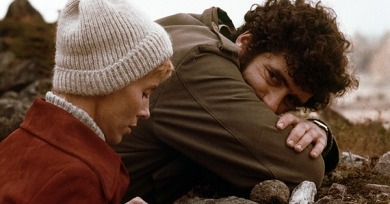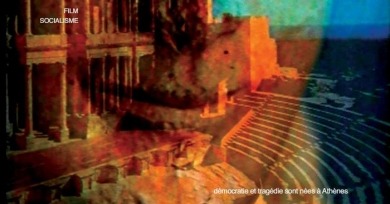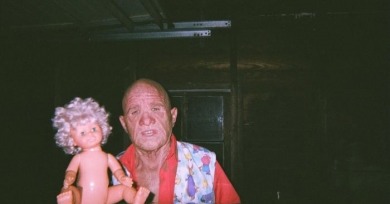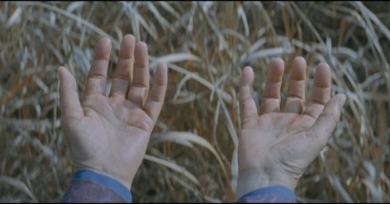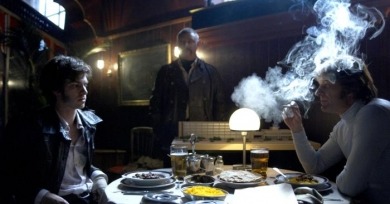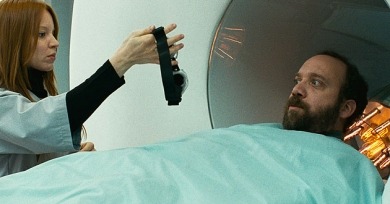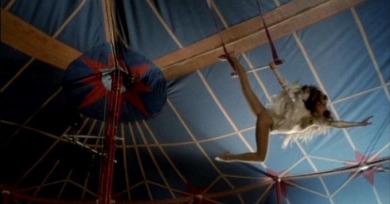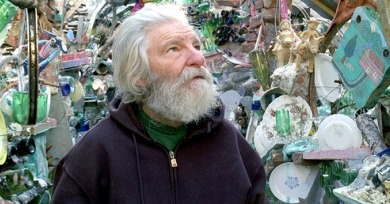Leo Goldsmith
It is a film maudit not because it suggests a filmmaker struggling with his material, but because the film falls short of the mark even while it remains so close to Bergman’s other work. In this way, it’s the film maudit at its most maudit: the self-parody.
Though Godard’s latest nudge at the limits of cinema parades a number of the director’s usual puckish gestures, multilingual plays on words, and provocative image-puns, it’s nonetheless a dour archaeology of the roots of our cultural end times.
At an unflagging pace and a bracing sensorial intimacy, each of Polgovsky’s documentaries exploits the paradox of HD video: its mobility and immediacy and its seemingly endless plasticity.
It doesn’t just dabble in a subject matter the filmmaker has hitherto eschewed, but goes whole hog, channeling spirits from the netherworld and envisioning the bright lights of the Great Beyond with all the loud music cues and fuzzy CG of an episode of Medium.
If ever there were a movie that cried out to be either accepted on its own terms or fucking hated, that film is Trash Humpers.
In its achingly precise mise-en-scène, its deeply affecting elegiac tone, its finely calibrated performances, and, yes, its straight-up knee-slapping silliness, Mother represents the work of an astonishingly talented narrative filmmaker at the height of his abilities
Each episode—1974, 1980, and 1983—casts its own particular pall over the twisted characters and inevitable tragedies, and each episode's director visualizes the story's sense of dismal and inescapable horror in his own way.
The red balloon is beautiful, but empty. Its movement fascinates and seduces the camera; it’s elusive in its meaning as well as its motions, and its value is only certain in its aesthetic appeal. But this value should not be underestimated.
Financed by the state-owned China Film Group Corporation to the tune of $80 million, John Woo's Red Cliff is the latest “most expensive Chinese film ever made,” following quickly upon such prior contenders as Curse of the Golden Flower and Hero.
Min Ye… (Tell Me Who You Are) is the Malian director's first feature in over a decade, and it comes to us, as do many films from contemporary Africa, partly due to European funding and technical support.
The character actor's curse is the risk of being—no, the need to be—constantly self-parodic, cartoonishly repeating the quirks and ticks of a role allotted to him by popular taste (or uncreative casting agents).
Meadows’s new film Somers Town offers a vivid contrast between the Eighties, when Britain's large unemployment numbers bred suspicion among the “true” English about their immigrant neighbors, and the 2000s, when the U.K.’s membership in the European Union has made ethnic diversity an inevitability.
For those interested in Denis's work, the approximate fifteen-year period of her career when she worked as an assistant director prior to her directorial debut, is particularly useful for both its length and its pedigree.
Through Yolande Moreau's astonishing performance in the title role, Seraphine is volatile, pitiable, comic, and crazed, but she is never simply a starry-eyed dreamer whom folks just don't understand.
According to IMDb, the working title for Obsessed was Oh No She Didn't, a factoid that, though too good to be true, I’m inclined to believe.
As cinematic revenge-seekers go, Johannes Krisch’s Alex, the protagonist of Götz Spielmann's Revanche, is something of an anomaly.
Though the spectator may be occasionally alarmed or confused by his behavior, the South Philadelphia muralist, mosaicist, and street artist Isaiah Zagar is more of a modernist than a schizophrenic.
The rhythms of this story, while ploddingly familiar, are made digestible by Caine’s rapport with Milner—not exceptional in itself, but credibly touching enough without being cloyingly sentimental.
Dreams and aspirations linger below the dusty surface of Tulpan, and each of its characters expresses a secret desire for something that seems to lie just beyond the arid landscape's distant horizon.
Whether unconscionable sacrilege or hyper-self-conscious camp, Travolta’s appearance is nonetheless transparent image-management of the most calculating and least entertaining variety.
